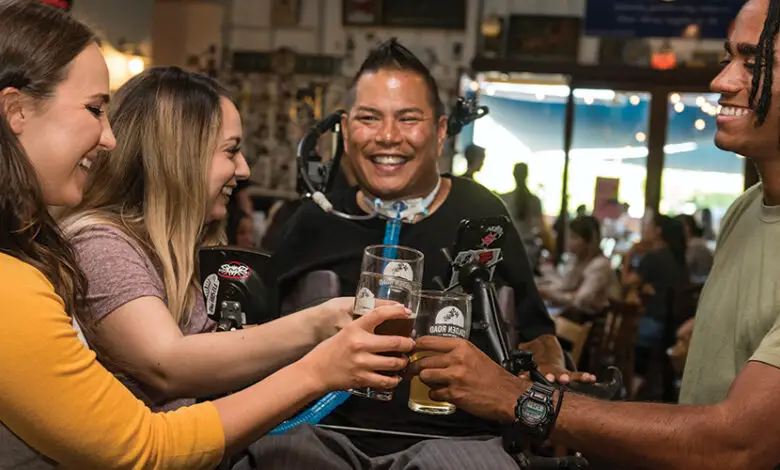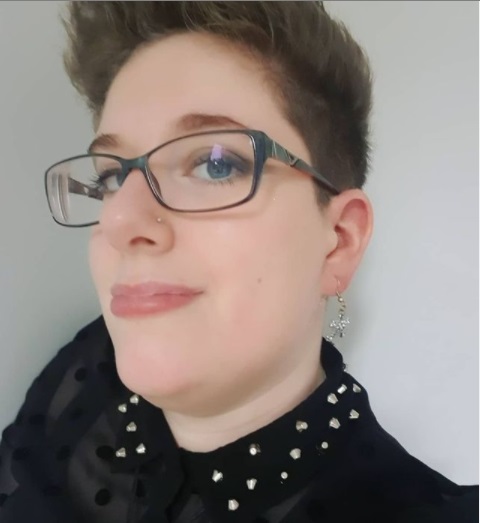
How to be a good ally to disabled people
Alongside the disability community supporting each other, another vital tool in conquering full inclusion is having non-disabled people support and advocate as an ally to disabled people.
Here, disability blogger Dax shares a post from their blog Diary of a Disabled Person on how to be a good ally to disabled people.
You don’t have to be disabled to enjoy my content or engage with me on social media. Indeed, I have had many wonderful interactions with people who call themselves an “ally” to the disabled community.
Unfortunately, I have had just as many negative conversations with so-called allies where my experiences of being disabled are ignored or outright contradicted in favour of their own perspectives.
Many harmful misconceptions have originated unintentionally from people who are genuinely trying to be a good ally, and often disabled people are wary of those who call themselves allies just in case their actions contradict the label.
So, if you’re an ally to disabled people, how do you make sure you’re one of the good ones?

Listen to disabled people
First and foremost, it is important to listen to disabled people instead of speaking over or for us. Where disability is concerned, the experts are disabled people, not those who care for us, work with us, or study disability in an academic setting.
That’s not to devalue disability studies, which is an important subject, but any good school will still centre the experiences of disabled people as the source of evidence in their research.
Furthermore, I have encountered far too many parents and carers who claim to know what it is like to be disabled because their child or client is disabled.
I’ve also come across medics who confuse being an expert in the physiology of a particular condition with being an expert on what it means to live with that condition.
If you want to know what it means to be disabled, you need to be speaking to disabled people.
Ask first before helping disabled people
If you see a disabled person that you think could use a hand, it’s important to ask if they need help first, and even more importantly, listen to their response.
It’s important to avoid just grabbing a disabled person (or anyone really) unless there is an immediate danger.
For someone who cannot see or hear you approach, a sudden grab is startling and disorienting, and for others, even a light touch can be physically painful.
Once you’ve asked us if we need assistance, the next step is to listen to our response. Too many times I have suffered strained muscles in my shoulders and wrist when doors have been wrenched from my hands even when I’ve declined help.
On one occasion, I had boiling water spilled on my lap because someone refused to believe that I could carry my own coffee.
Frustratingly, these injuries are often used as justification for providing “help” in the first place, even though the injury would not have occurred had they simply listened to us first. If a disabled person declines help, they don’t need help!
Don’t accuse people with hidden disabilities as “fakers”
A good ally to disabled people will also recognise that not all disabilities are visible. Were it not for the use of mobility aids to get around, my own disabilities would be completely invisible on the surface.
There are plenty of individuals with the same medical conditions as myself who cannot afford or do not need mobility aids, but they are still a part of the disabled community.
Many disabled people only need accessibility aids some of the time, so seeing someone with and without a certain aid does not mean they are faking their condition.
Indeed, the myth that disability is something that can be easily faked for attention or even financial gain does significant harm to disabled people, meaning that we are subjected to exhausting invasions of our privacy to become eligible to receive aid. Someone who accuses people of faking their condition is no ally.
Advocate for access in society for disabled people
Finally, a good ally will advocate for accessibility, even when no disabled person appears to be present. Ask for alt text to be added to images and subtitles made available. Question the lack of a ramp or lift where there are stairs. Untangle alarm cords in accessible bathrooms when they are tucked out of reach.
12 years after the introduction of the Equality Act, and almost 30 years since legislation demanding equality for disabled people in the UK, there is little to no excuse for inaccessibility.
There are plenty of grants and schemes to help places become more accessible, even where listed buildings are involved. Challenging inaccessibility is not unreasonable.
If you follow these four, basic rules, chances are you will be a wonderful ally to disabled people.
True allies are always appreciated, especially as hostilities towards marginalised groups are on the rise. Even just reading this blog post is a good step towards becoming an ally, and for that, I thank you.
By Dax Everritt
You can read more of Dax’s posts on her blog Diary of a Disabled Person, and follow them on Twitter, Facebook, Instagram and TikTok.
More on Disability Horizons…
- 5 products to help manage fatigue and chronic illness
- 10 influential disabled LGBTQ+ activists to follow this Pride Month
- Celebrating disability equality and inclusion with the Disability Horizons Shop
- Why awkward conversations and intrusive questions about my disabled partner are not acceptable in society